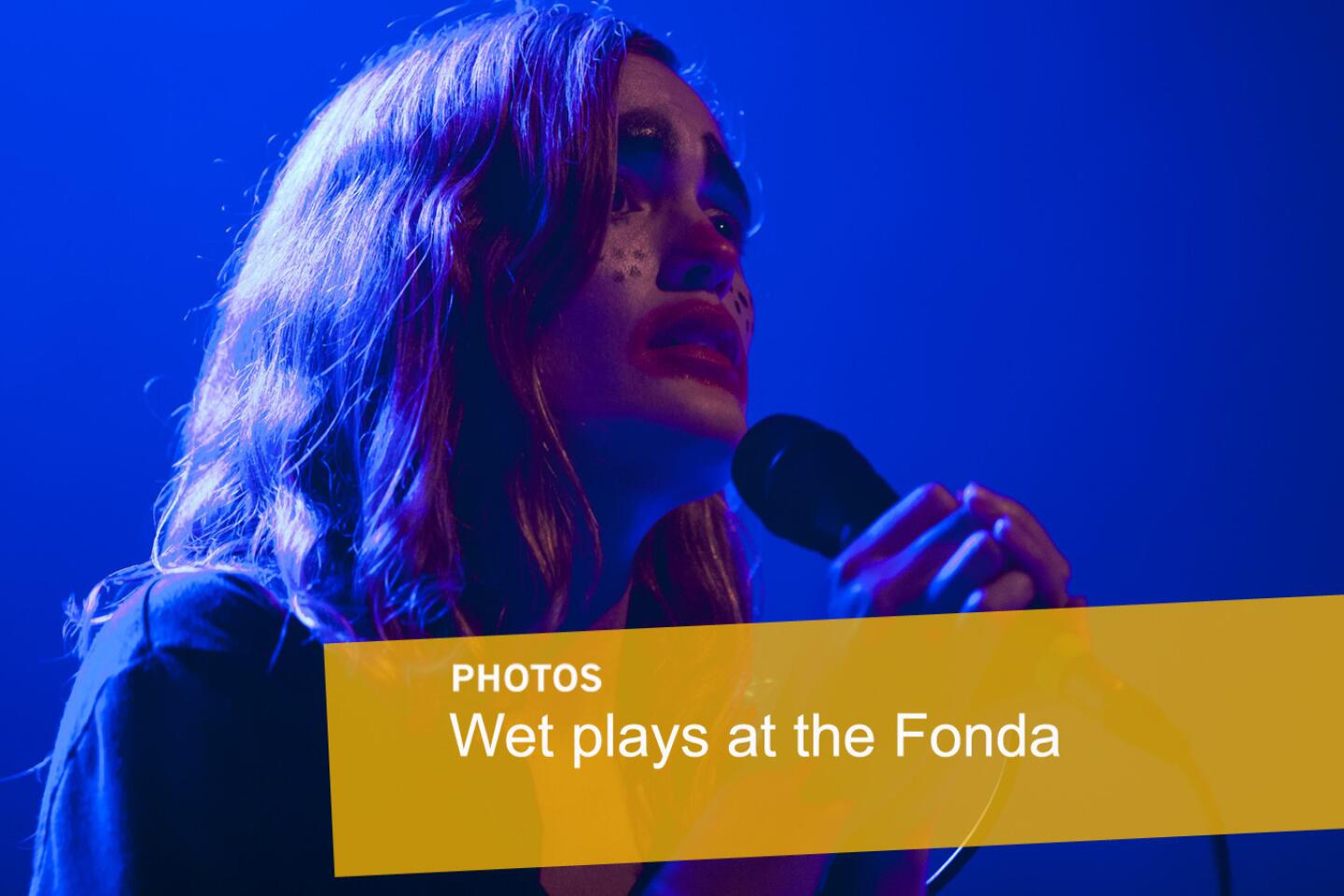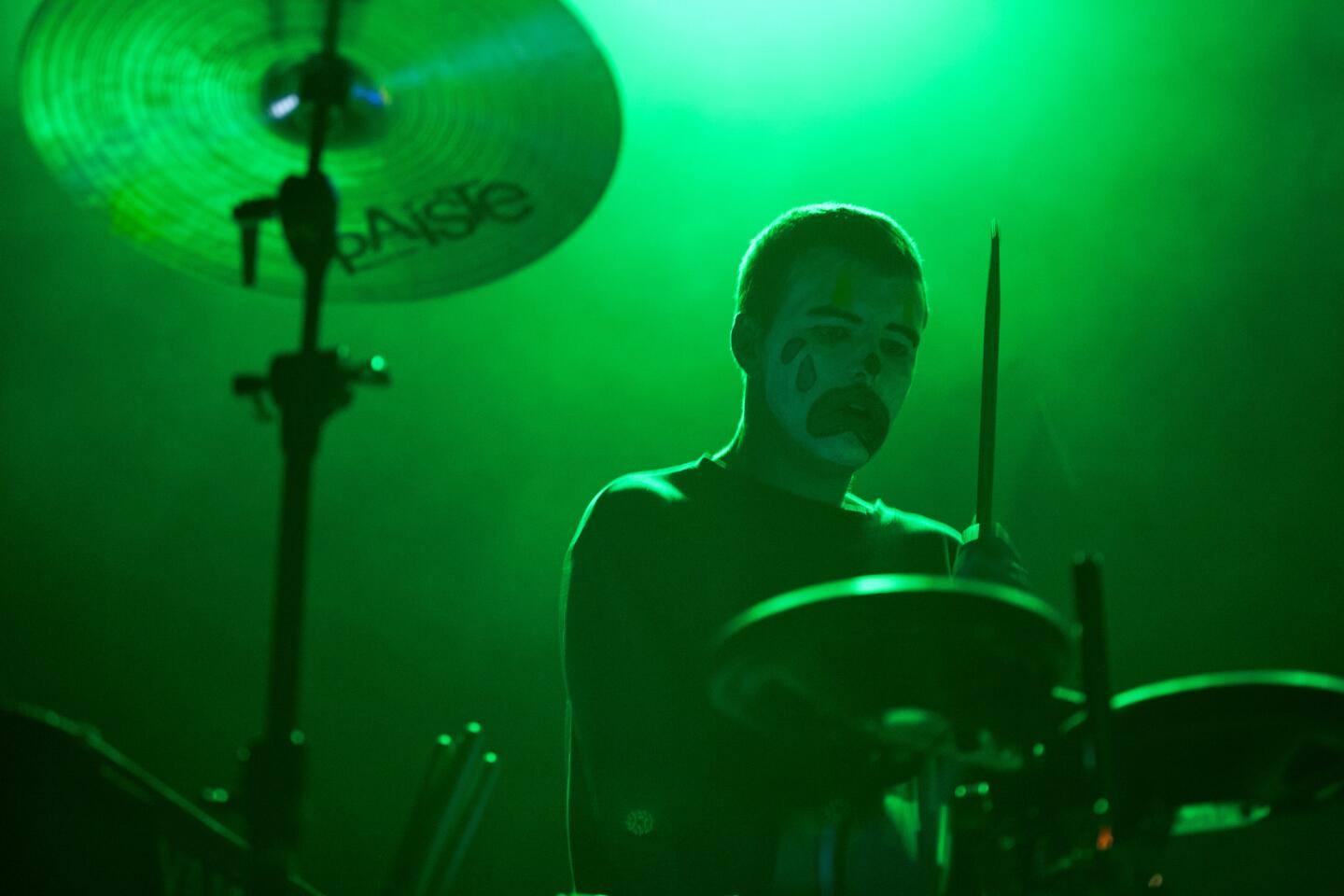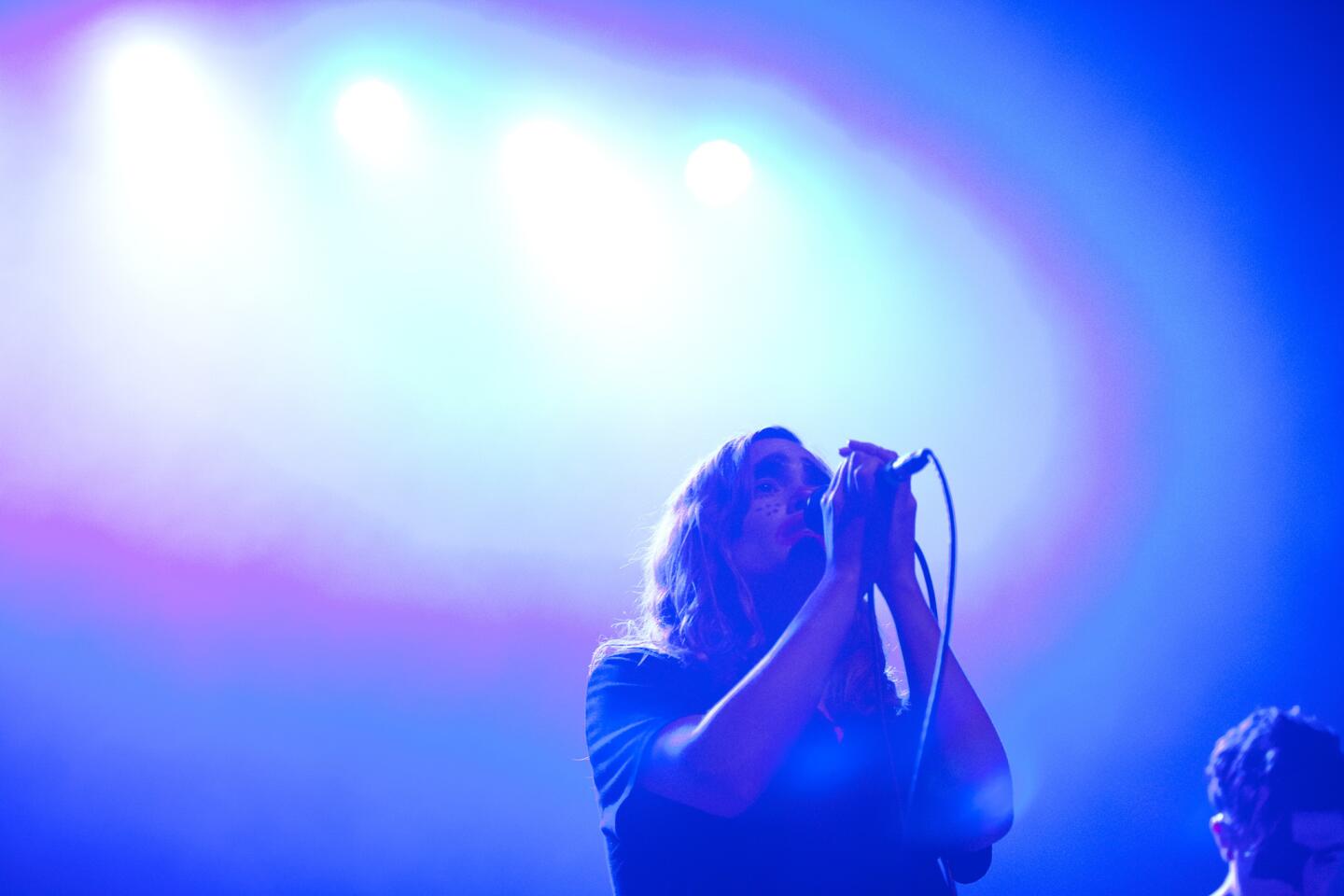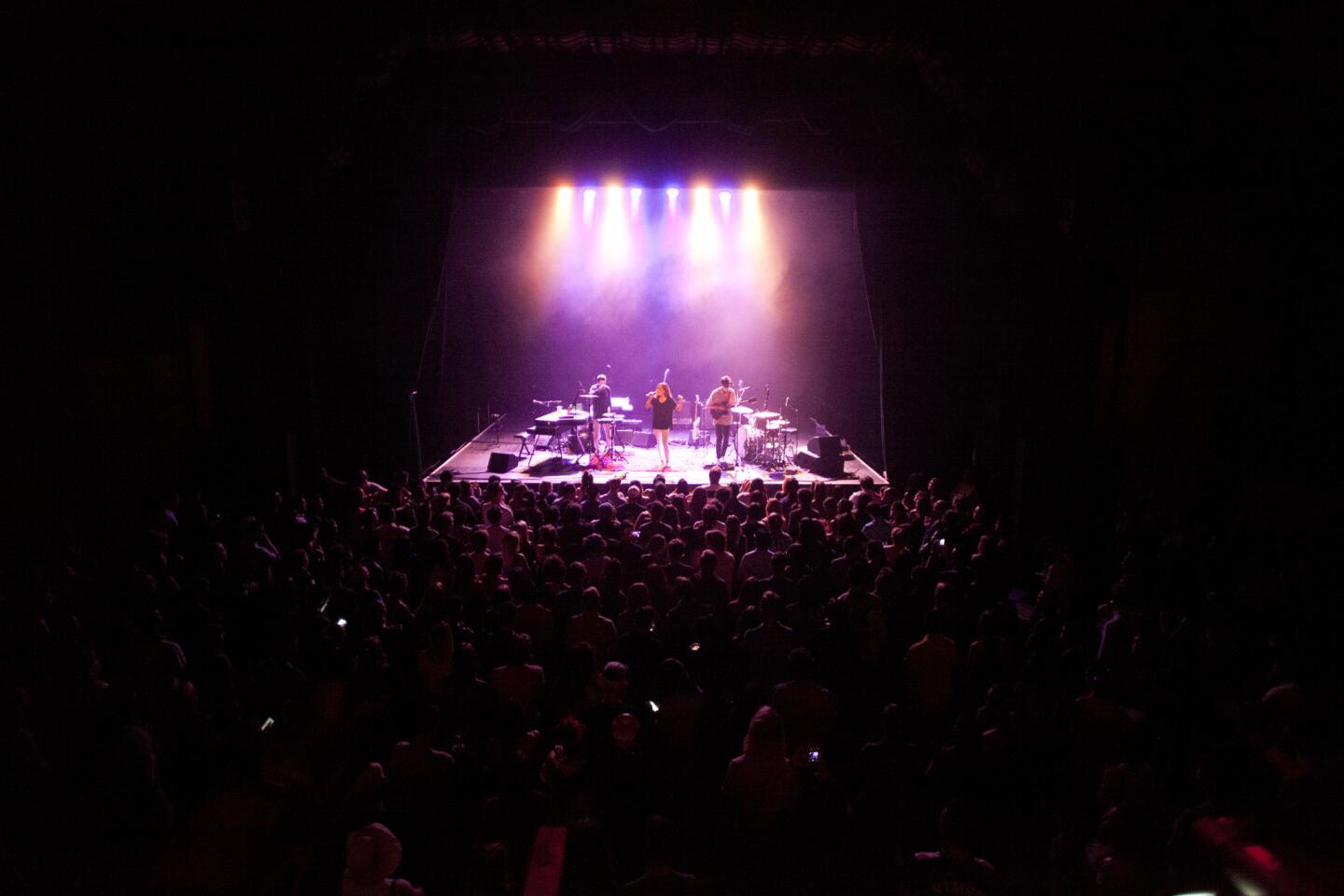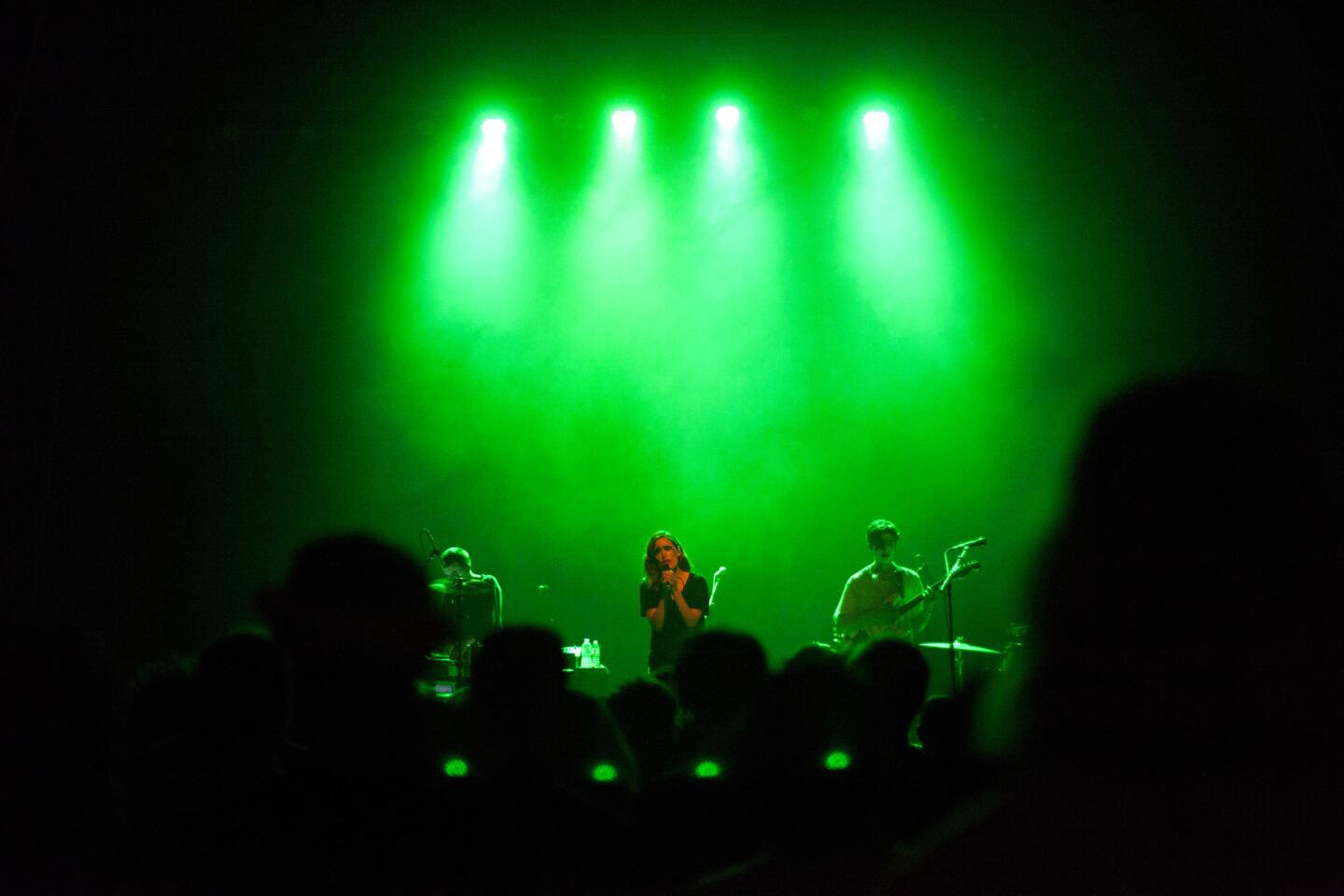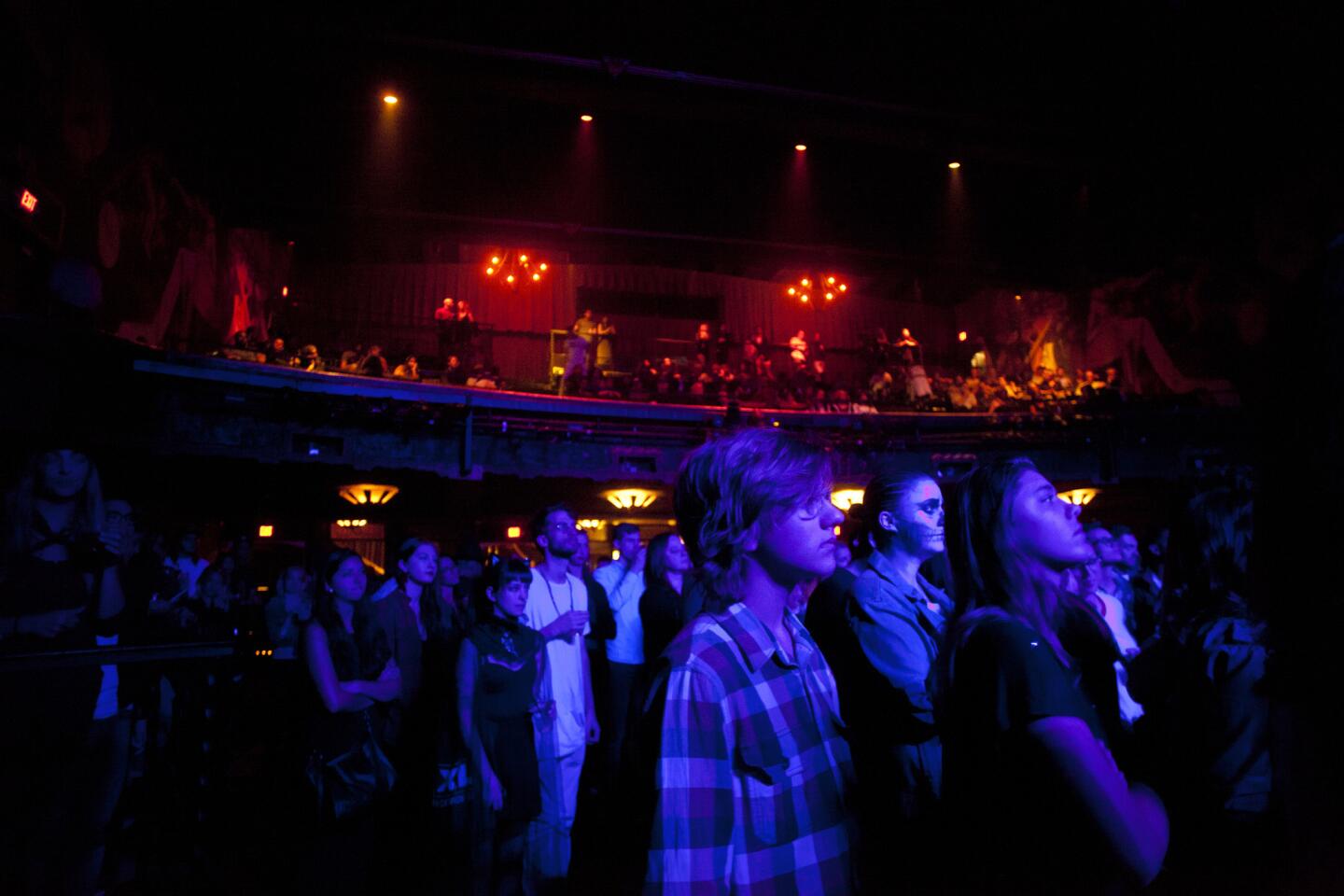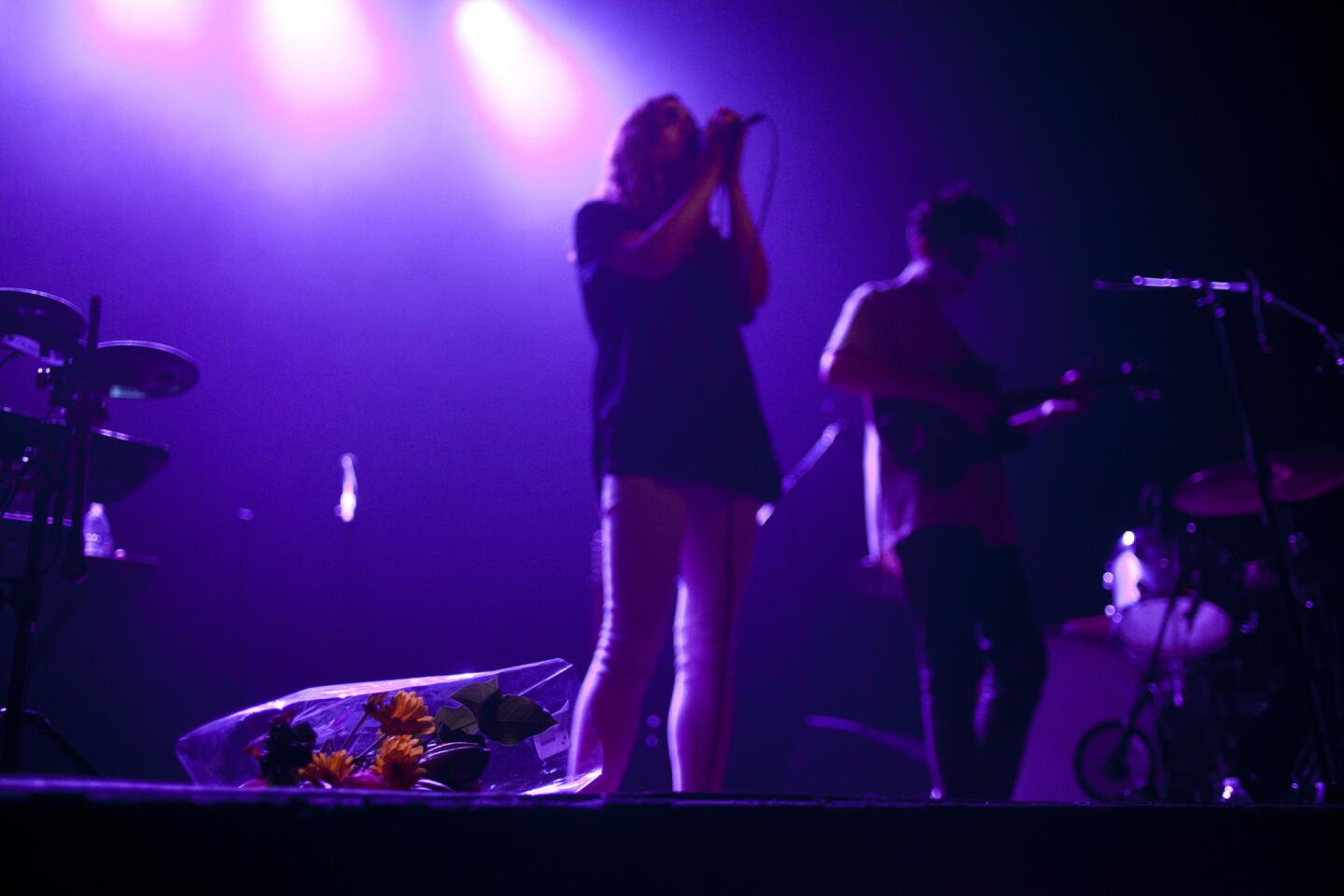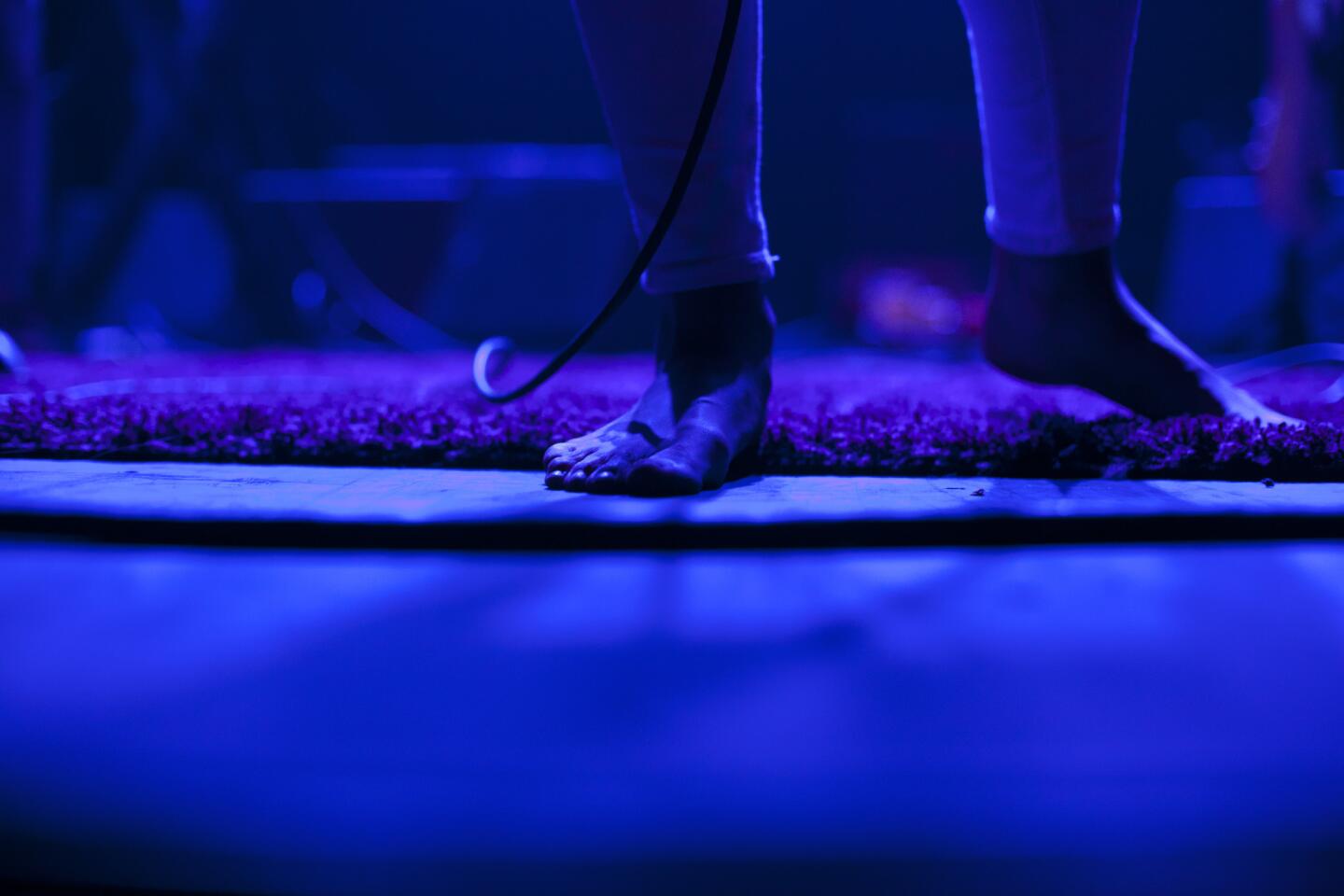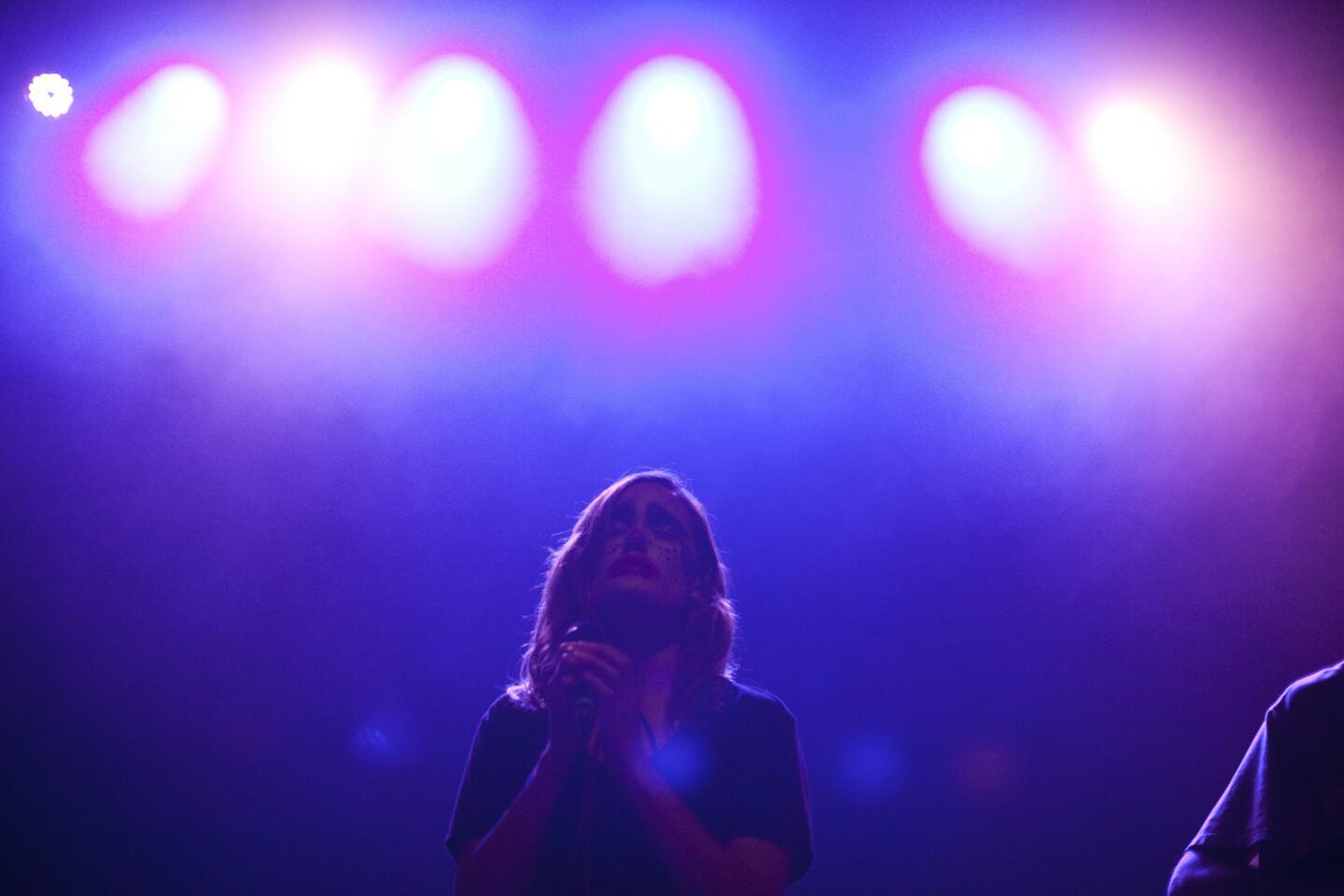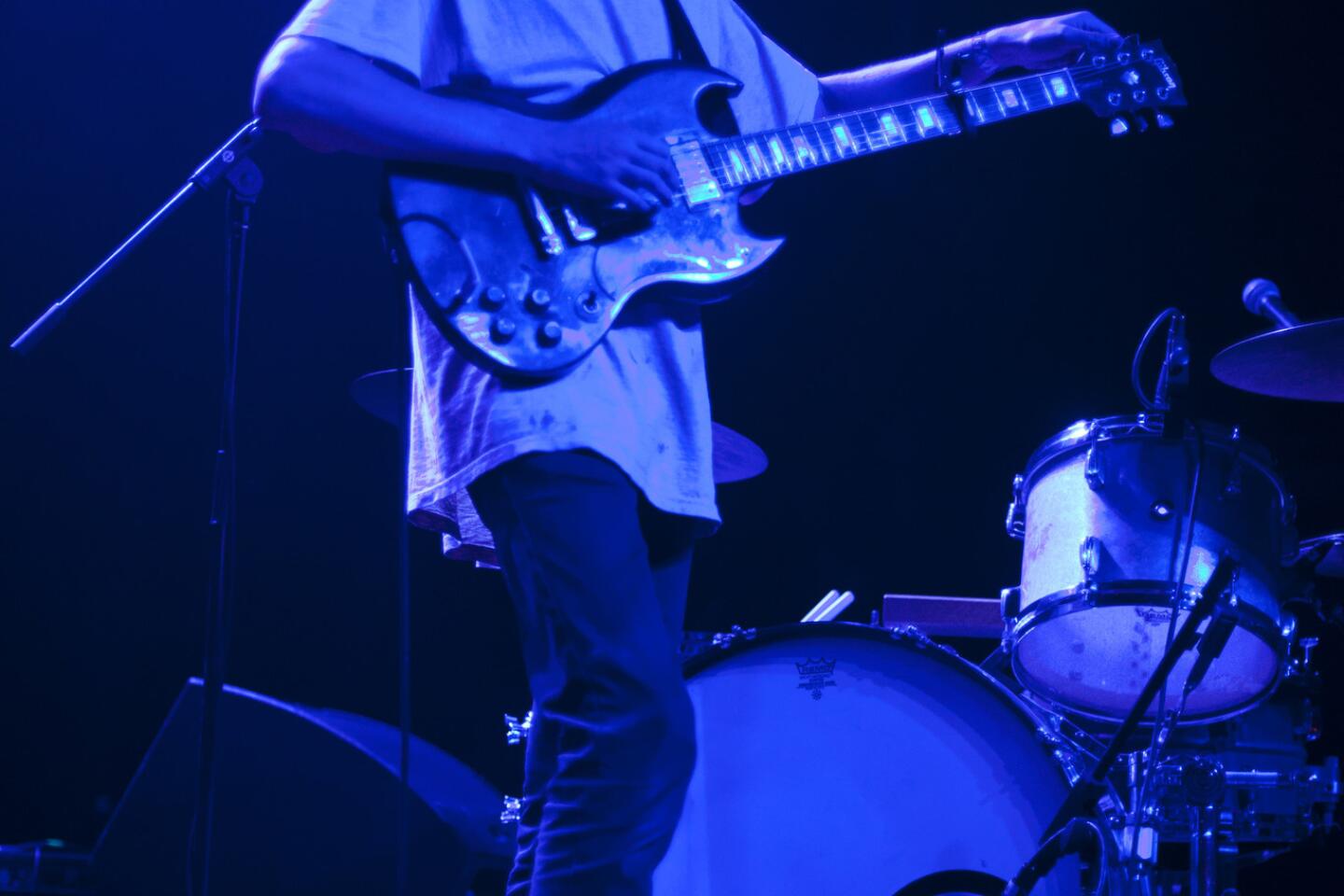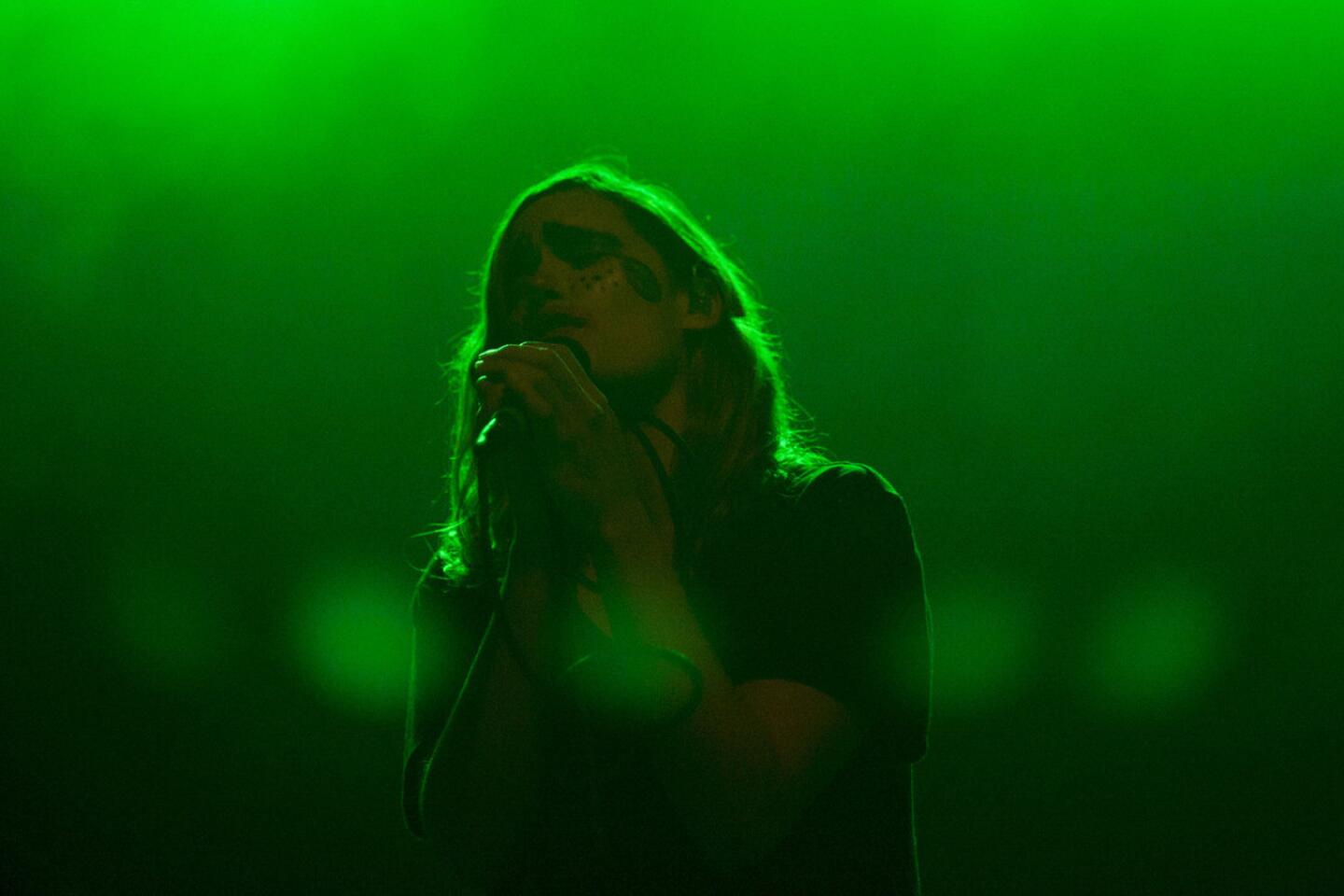Wet ends a brief tour at the Fonda, and begins a much bigger story
- Share via
Wet’s appearance at the Fonda Theatre on Friday night was a stealth move. The band’s Los Angeles performance was the last in a monthlong series of U.S. and Canadian shows in a supporting slot. The Brooklyn trio was opening for Tobias Jesso Jr., a very tall man who is currently the better known of the two acts. But when Wet’s debut album, “Don’t You,” is released next January, that will probably change.
NEWSLETTER: Get the day’s top headlines >>
The band used no stagecraft beyond lights that change color the way they do anywhere in the world, and makeup that bowed to the incoming Halloween. Guitarist Marty Sulkow wore white face paint, with one eye blacked out by a star. Hello, Paul Stanley of KISS. Singer and songwriter Kelly Zutrau and drummer and keyboard player Joe Valle both worked variations on the sad — or measled — clown. After the first song, Zutrau asked from the stage, “Hey can you guys see us? We’re dressed up!” Cue exaggerated frowns.
The question should be read the other way. If you can’t see them, you’ll be scrambling soon to say how, yeah, sure, you totally saw them once in this, like, really small club.
Wet’s music is maddeningly simple. It’s probably all ballads, even when there are drums. Zutrau’s unironic, old-fashioned singing hints at R&B, so maybe that’s what it is? And the band’s set-up, combined with the emotional directness of the songs and the space built into the music, recalls the xx, another trio that found an audience with vertiginous speed.
In 2015, the vocal styling of ‘90s R&B has leached into so many genres that there is no real payoff in finding a source for Wet, which moved very quickly from SoundCloud to Columbia, also obviating the need for deep indie discussions. (We probably won’t be reading think pieces about any of these rubrics soon, said the guilty party.) Wet could easily open for, or headline with, Drake, Lykke Li, Arca, Lorde, FKA twigs, Grouper, Taylor Swift or Haim (whose members were in the audience).
A lack of theatrics helped. At a show in Brooklyn earlier this year, the band performed in front of large, illuminated disks that obscured them (as any crowd-facing lights will do). Having the supporting effects stripped away returned the band to its cast-iron support structure: Zutrau’s words and melodies. She sang in her hard, bright alto, with no guide track, even when executing a tricky falsetto passage. Sulkow’s guitar parts help make Wet sound like Wet, paradoxically, because they could be lifted into almost any song and give the songs a universal feel. Sulkow wanders into the unexpected chord changes and finger picking of The Smiths’ Johnny Marr, then sneaks in cloudy accents that recall jazz guitarist Bill Frisell. Valle’s keyboard figures and drum patterns rarely challenge the vocal, opting to support. It would take about 10 minutes to turn every Wet song into a dance track, yet the band hasn’t. Let the SoundCloud kids do the remixing.
Zutrau will stay in the game for several reasons, one being her facility with a phrase clear enough for pop but not so obvious that it will lose an indie audience loyal to misdirection. In the opener, “Deadwater,” Zutrau alternates six words with the same ending phoneme, separated by one rhyming couplet placed like a spacer between tiles: “If I could be stronger and if you were just older, we might last this out longer, but the task just gets harder. And my face turned to red from drinking all that dead water, and again when you said that I was my mother’s daughter.” That breakup is an orphaned, nomadic hurt that spans generations and continents.
Wet songs float between the poles of stubbornly easygoing music and lyrics that never even skirt resolution, and often sink below the surface into nasty reef.
If there is any solid parallel for Wet’s potential arc it’s Sade, an artist whose music has landed in permanent restaurant rotation just for the sin of being sonically agreeable and uninterested in aggression. (Wet songs, appropriately, have no sharp edges.) Sade’s musical detail and emotional intensity are better appreciated by younger generations than by some of her original cohort. Hopefully Wet doesn’t need to wait for their own revival to be taken as the surgically careful musicians they are. Get your 2016 tickets now.
Follow me on Twitter @sfj
More to Read
The biggest entertainment stories
Get our big stories about Hollywood, film, television, music, arts, culture and more right in your inbox as soon as they publish.
You may occasionally receive promotional content from the Los Angeles Times.
